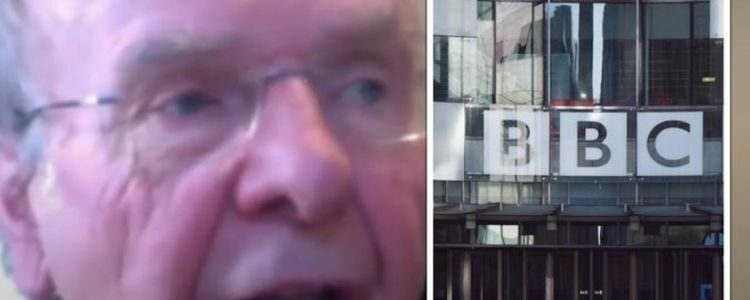
‘If they do that, they’re doomed!’ Former BBC trustee’s warning for broadcaster survival
BBC are 'doomed' if they cut programmes says Tait
We use your sign-up to provide content in ways you’ve consented to and to improve our understanding of you. This may include adverts from us and 3rd parties based on our understanding. You can unsubscribe at any time. More info
Professor of Journalism at Cardiff University, Professor Richard Tait, spoke to Express.co.uk about the future of the BBC and shared what he believes the broadcaster needs to do if it wants to remain afloat. Professor Tait explained the BBC needed to “double-down” on popular programmes like Strictly Come Dancing and Match of the Day but also needed to keep its local language channels alive. He added the BBC is one of the few outlets which provides hyperlocal content to people all across the country that may not be financially lucrative but the broadcaster needed to be seen as a “good citizen” to remain relevant amid attacks on the TV licence.
Speaking to Express.co.uk, Professor Tait explained how he believes the BBC could survive following attacks on the TV licence.
He explained: “I think the BBC has to double down on the things it does which are distinctive, and that includes Strictly Come Dancing and Match of the Day and EastEnders and the things which the mass audiences love.
“So it has to double down on that, it also has to continue to do things which no commercial organisation would do.
“No commercial organisation would run a network of local radio stations, speech-based local radio stations, as the BBC does.


“No commercial organisation would run programming in Welsh and most commercial organisations are now finding it very difficult to justify having big production centres all around the country.”
Professor Tait added it would not be a good idea for the BBC to start cutting documentaries and channels simply because they were not appealing to the masses.
The academic believed the BBC provided something for everyone and it was right the public broadcaster helps keep local culture and education alive.
He explained: “The trick they’ve got to find is they’ve got to continue to do the really fabulous mass material which people love.
“But they’ve also got to remain, if you’re like, a good citizen and trying to bring public value to what they do.
BBC Breakfast: Sally Nugent slams Nadhim Zahawi

“Rather than end up just saying, Well, we’re going to cut everything because not many people watch those sorts of documentaries.
“Not many people like that sort of music, we don’t care about local news anymore.
“If they do that, I think they’re doomed.”
The BBC is facing a crisis after Culture Secretary Nadine Dorries announced a freeze on the TV licence fee for the next two years.
Debates have once again erupted over how the broadcaster is funded following the news the fee will be fixed until April 2024 and then will rise with inflation for the following four years.
DON’T MISS
‘Gary Lineker earns 8 times more than PM’ Viewers rage at BBC spending [REACTION]
BBC rocked as two thirds want licence free scrapped [INSIGHT]
TaxPayers’ Alliance blasts ‘outdated’ BBC tax on stretched homes [REACTION]

TV presenter David Dimbleby suggested the licence fee could be linked to council tax and based on income and property value.
He told BBC Radio 4’s World at One: “The licence fee is something that I absolutely believe in.
“I don’t think you can have public service broadcasting without paying for it through the public purse in that way.
“But what I do think is the BBC should acknowledge that £159 paid by the poorest as well the richest is just unfair, it’s inequitable.”
Chair of the Danish Journalists’ Association, Tine Johansen, told Express.co.uk that Denmark has now adopted a taxation system that is much fairer than the media licence they had to pay for.
Ms Johansen said the taxation is based on income as some concerns were raised over pensioners paying the same amount as business owners for their media licence.
The Sun reports a row has broken out among ministers as some turn on Ms Dorries’ decision to freeze the fee.
Pensions minister Therese Coffey, who is a former BBC journalist, is thought to have led the arguments against the Culture Secretary and believed the move was too brash.
A source told The Sun: “Therese tore into Nadine but this week others piped up with her, saying there had to be due process before the broadcaster’s funding is put to the sword.
“This is fast becoming an unsavoury weekly spat and too much of a regular occurrence.”
Source: Read Full Article